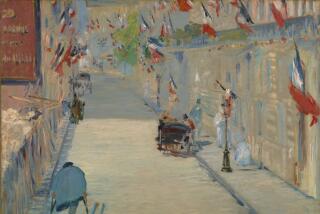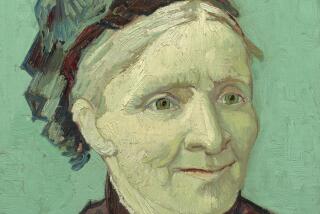The Lost Allure of Intellectuals
POTOMAC, Md. — Back in the 1950s, when I was a correspondent in Paris for Time, my duties included covering the intellectual community. This gave me a unique opportunity to focus on one of the key differences between the United States and France. While Americans derided highbrows as effete eggheads, the French venerated them as authorities on virtually everything: art, literature, music, architecture, politics, economics, religion, social questions, even haute cuisine.
As I sought to fathom this phenomenon, it occurred to me that Americans were down-to-earth pragmatists who esteemed the practical, while the French respected the power of ideas and the elite caste that shaped them. Americans also revered commercial success but, to the French, nothing was worse for a genuine intellectual than to succumb to the profit motive. As Simone de Beauvoir suggested in “Les Mandarins,” a roman a clef, her circle of contemporaries could be as parochial, arrogant and chauvinistic as ancient Chinese scholars. And, like mandarins, they were imbued with an overweening sense of their own superiority.
In the years after World War II, a new work by Jean-Paul Sartre, Beauvoir, Albert Camus, Andre Malraux, Francois Mauriac, Francoise Sagan or Jean Anouilh was celebrated in every cosmopolitan city. In contrast, scarcely any attention is now paid outside France to the current crop of French writers, playwrights and philosophers. They are pygmies compared to the titans of the past, but, within France, the intelligentsia continue to be exalted as virtual deities.
Back in the ‘50s, I was impressed by the prominence conferred on illustrious and even obscure novelists, poets, dramatists, composers and scientists. Avenues and boulevards bore their names. Their statues stood in parks, their portraits adorned bank notes and postage stamps. The government subsidized their projects, or granted them cushy sinecures, such as diplomatic appointments to congenial capitals. Fashionable hostesses lionized famous hommes de lettres, while gossip columnists detailed their liaisons, tastes and squabbles in the schmaltzy jargon usually reserved for screen and sports stars. Scores of weeklies and monthlies carried their latest pronouncements. Their polemical essays triggered bitter disputes that, judging from the endless accounts in the papers, fascinated readers. Their radio talk shows attracted huge audiences, and crowds packed halls to hear their marathon, if arcane, lectures.
In my time in Paris, highbrows regularly assembled in the afternoon for aperitifs and chitchat at their favorite Saint-Germain-des-Pres cafes. Sartre, in tattered jacket and wool scarf, a pipe clenched between his teeth, joined Beauvoir and their existentialist disciples at the Deux Magots, the Flore or the cameo bar at the Pont Royal hotel. Camus preferred the solitude of a pedestrian bistro in the Place Saint-Sulpice nearby, and Samuel Beckett could be seen nursing a beer at the quiet Montana. Expatriate American writers, including Richard Wright, James Jones and James Baldwin, gathered at the Tournon, a prosaic cafe-tabac opposite the Jardins du Luxembourg. Montparnasse, the venue for artists between the wars, had gone to seed. Still, such vintage surrealists as Louis Aragon, Andre Breton and Paul Eluard periodically appeared at the Select, the Rotonde, the Dome or, on balmy evenings, in the exquisite garden of the Closerie des Lilas.
I prowled the neighborhood, attending avant-garde film festivals, soirees at voguish salons, jammed vernissages at chic art galleries, glittering cocktail parties at trendy publishing houses. Much of it may have been artificial in this incestuous, hot-house atmosphere but, to me, no place else on Earth was so exhilarating.
The more I observed these intellectuals, the more it was clear that their claim to personify the conscience of the nation was, if not a sham, grossly exaggerated. After the war, almost every Frenchman boasted of having fought in the Resistance against the Germans. But, on the eve of the liberation of Paris, in August 1944, only some 300,000 were involved, a negligible percentage of the population. Sartre staged his first drama, “Les Mouches,” during the Nazi occupation, and Beauvolr published “L’Invitee,” her first novel, while broadcasting for Radio Nationale, run by the pro-German Vichy regime. Jean Cocteau hobnobbed with Nazis and produced his plays with their permission, and Aragon solicited their approval for his poems. Straddling, Camus came out with his initial novel, “The Stranger,” while, at the same time, he edited a clandestine Resistance newspaper.
Beneath their facade of individualism, highbrows could be remarkably conformist. They traced their ideological lineage back to the Jacobins of the Revolution and clung to the belief, popular during the 1930s, that communism was the only alternative in the struggle against fascism. Only a minority were actually party members, but many more belonged to various front organizations. An astonishing number of gullible celebrities lent their prestige to the communist cause. Picasso sketched the party’s most effective propaganda gimmick--the peace dove. Yves Montand, his wife, Simone Signoret, Jean-Louis Barrault and Marguerite Duras were constantly circulating petitions and parading in protest marches.
Not only did such intellectuals refrain from criticizing the Soviet Union, they parroted the Moscow line. Refusing to acknowledge Josef Stalin’s atrocities, they rejected evidence that he had deported millions to Siberian gulags. They were conspicuously mute when his satraps executed “deviationist” communist leaders in Czechoslovakia, Hungary and Romania. And, despite proof of Russia’s anti-Semitism, they remained silent during the trumped-up trial of allegedly subversive Jewish doctors in Moscow. They reflected the doctrine that to blemish the Kremlin’s image would bolster the enemies of the proletariat, a species they knew only in the abstract.
The same myopia prompted them to disparage the United States. They tended to harp on such cliches as the evils of Wall Street and lynchings in Georgia. They minimized America’s role in the conquest of Germany, instead ascribing the emancipation of Europe to the Soviet sacrifices at the Battle of Stalingrad. The United States, they asserted, was bent on dominating Europe through the Marshall Plan, the Atlantic Alliance and, of course, Coca-Cola and Reader’s Digest. This litany was not confined to communists and fellow travelers. Even moderates cautioned that, unless U.S. ambitions were checked, the “cohesion of French civilization” would be jeopardized.
These views, however distorted, reflected the postwar problems that bedeviled the French. They were humiliated by their surrender to Adolf Hitler. With their political structure shaky, their economy in shambles and their social fabric torn by strikes, their pride in la grandeur de la France rang hollow. Further exacerbating their predicament was their reliance on U.S. aid. Frustrated and resentful, they unleashed tirades against America.
Today in France, as elsewhere, Marxism is dead and, with some exceptions, highbrows have become conservative. Yet, out of patriotic zeal, they still blame America for contaminating their culture with Hollywood movies, McDonald’s hamburgers and pernicious Franglais phrases. Many, I suspect, yearn to turn the clock back to the days when the issues were clearer, when they mounted the barricades to defend the republic against monarchists or wrangle with reactionaries over the Dreyfus affair. They will never attain that dream, but there is a charm to spending an evening on a cafe terrace, sipping a cognac and listening to them debate some arcane subject. Only in this cozy Parisian cocoon do I feel comfortable enough to muse, “Vive la nostalgie!’!”*
More to Read
The biggest entertainment stories
Get our big stories about Hollywood, film, television, music, arts, culture and more right in your inbox as soon as they publish.
You may occasionally receive promotional content from the Los Angeles Times.










